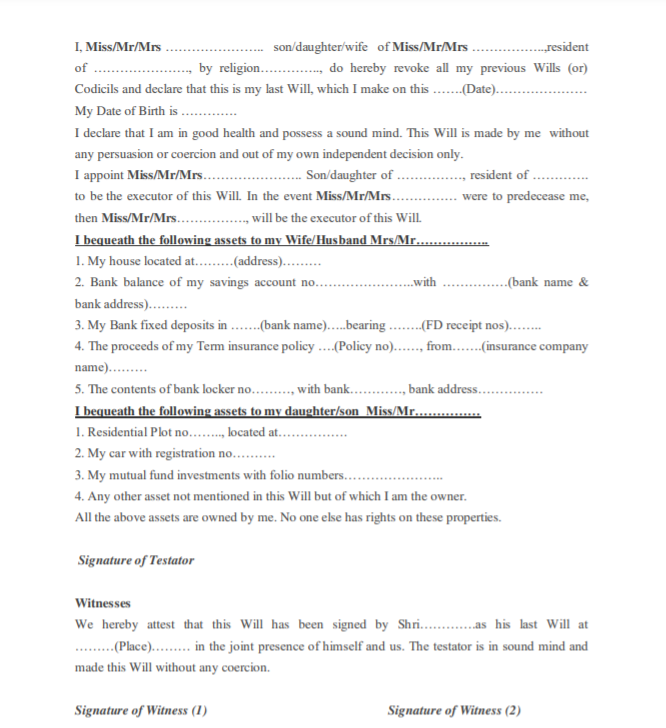Where there is a Will, there is a jargon
If you own an asset, write a Will. It is better that you decide who to pass on the asset to after you are gone.

With Covid-19 revealing the fragility of life, many people who procrastinated bequeathing their life’s belongings are now getting more active and writing Wills. Death is uncertain, so writing a Will should be done and dusted as soon as one creates an asset that is worth passing on after his or her demise. Of course, as more assets get built, there is always a way to revise the Will.
“There are many people who are seeking legal services with regard to Will. It involves the drafting of the Will, execution of the Will and various other legal compliances. Now, this is because more people are actually fearful of this virus wherein the pandemic situation has created a ruckus among the members of the society. Elders are in much fear that they may not survive this virus sometime or later therefore they need to divulge the property. Some are also fearful that their relatives might use their property for illegal purposes and their children or close family will be left alone,” Utkarsh Tiwari, a civil court lawyer, said.
What is a Will?
Will is a legal document that allows any Hindu, Buddhist, Sikh or Jain to rightfully transfer the rights of his or her property to another person. The common misconception that it must be a blood relative who receives a bequeath is a myth. The beneficiary has the legal right to own or dispose off the said property after the death of the original owner.
Will is governed by the Indian Succession Act, 1925.
In the case of Muslims, the Will, known as ‘Hibba,’ is governed by Muslim Personal Laws.
Talking about different laws pertaining to Wills in the country, Tiwari asserted, “India has always advocated for the uniform civil code. But in India, where there are many religions, cultures, sects, and beliefs, it is very difficult to get through the uniform civil code as far as personal laws are concerned, because these personal laws are very dear to each of their religions.”
He further added that Will for Hindu, Sikh, Jain, Buddhist, Christians is governed by the Indian Succession Act. In India, only Goa doesn’t have different personal laws. Instead, they have their own Goa Succession Act, which works like a Uniform Civil Code.
Read More: Here’s how you can file e-Will
What does a Will look like?

How to draft a Will?
A Will can be drafted through a conventional route by seeking the services of a lawyer, or even online today. One of the most difficult tasks while filing a Will is putting value to all the assets one owns. That often requires expert inputs and detailed calculations.
Tiwari propounded, “The major difficulty that actually hours upon is the time period that has to be decided whether the valuation has to be done according to the time period of the market value of the asset when the bill was actually written, signed in the presence of witnesses, or when the bill is actually filed in the court to get a probate, or on approval from the court for a succession certificate.”
Another complexity in writing Wills is using the right legal terminology to ensure the beneficiary doesn’t spend more time with Suits and Cloaks making the spirit of the Will come alive after the death of the testator.
Common Jargons to know
There are a number of jargons that are used by legal professionals, but some common ones will make the Will writing process comprehensible:
Decedent: A deceased person
Testator – A person making the will, signing the same in presence of two witnesses. The author of the will bequeathing the assets and rights.
Beneficiary – A person whose name is mentioned in the will and is to inherit the property at the time of execution of the same
Executor of Will – A person usually a legal representative, chosen or appointed to look after the proper distribution of property, assets etc. as per the terms of the will
Codicil – Changes made to the written document
Estate: While filing a Will, listing assets is important. After the assets are listed, the valuation is done. Estate stands for those properties/assets that were owned by the dead person, who is also known as decedent.
Also Read: If you planning to prepare a will, here are five things you should know

